BRUSSELS — The designation last week of two relatively unknown figures for the highest posts in the European Union led to widespread criticism across Europe. At a heads of state meeting in Brussels on Thursday evening, the 27 member states of the EU designated BelgianPrime Minister Herman Van Rompuy as president of the European Council, and Britain’s EU Trade Commissioner Catherine Ashton as high representative for common foreign and security policy (HR). Van Rompuy is credited with putting an end to a lengthy political crisis between Belgium’s francophone and Flemish communities that virtually left the country without a government for […]
Briefing Archive
Free Newsletter

Over the course of its long history, America has experienced numerous religious “awakenings,” certain of which served as important precursors to the American Revolution, the abolition movement and Civil War, the Progressive Era (1890-1920), and the Civil Rights Movement. In effect, each “great awakening” served as a populist wellspring for radically new rules within our society, our economy and our political system. By most expert accounts, the world today is experiencing its own significant “awakening” of religious fervor, one triggered — in my opinion — by globalization’s rapid expansion around the planet over the past three decades. By penetrating previously […]
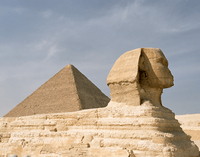
It is a strange kind of republic in which presidents serve for life. It is an even stranger one in which rulers inherit power from their fathers. Yet, that is the direction in which the Arab Republic of Egypt is headed. Egypt has experienced hereditary rule for millennia, from the pharaohs who began their reign 5,000 years ago to most (but not all) of the dynastic rulers who have called Cairo home for the last thousand years. The dissolution of the Egyptian monarchy in 1952 marked a turning point in Egyptian politics, ushering in military control and eliminating privileges that […]
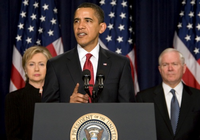
The following op-ed has been adapted from the Project for National Security Reform’s recently released report (.pdf), “Turning Ideas Into Action.” It is the third of three that WPR has featured. The first can be found here. The second can be found here. The National Security Act of 1947 established the National Security Council (NSC) to draw upon the expertise of the diplomatic, military, and intelligence departments and agencies to advise the president and coordinate policy. Today’s NSC consists of the president as well as select department secretaries and agency heads. A national security adviser and a small National Security […]

During his trip to Asia, President Barack Obama laid out a grand rhetorical vision for the future: a U.S.-China partnership working together to solve the world’s most pressing issues. Speaking in Japan, Obama declared, “America will approach China with a focus on our interests. It’s precisely for this reason that it is important to pursue pragmatic cooperation with China on issues of mutual concern, because no one nation can meet the challenges of the 21st century alone, and the United States and China will both be better off when we are able to meet them together.” It sounds very dramatic, […]
In an interview with Al Jazeera, Iraqi Vice President Tariq al-Hashemitalks about his decision to veto a key law that would enable electionsin Iraq to move forward. He contends that his decision will onlybriefly delay the impending election. Al-Hashemi’s veto was spurred bya stipulation in the election law that he felt would misrepresentexiled Iraqis.
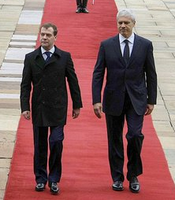
After years as a sidelined figure on the European political stage, Serbia is now attracting growing attention from both West and East. While continuing to line up its bid for European Union membership, Serbia is also the focus of Russia’s renewed interest in the Balkans. In October, Belgrade signed deals with Moscow that include support for a controversial oil pipeline, a generous loan deal and the establishment of a Russian base in Serbia that has the potential for military use. Some even see Serbia’s deepening ties with Russia as inimical to its pro-Western stance. But for the time being, Serbia’s […]
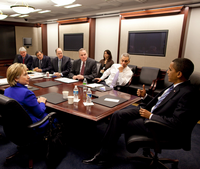
The following op-ed has been adapted from the Project for National Security Reform’s recently released report(.pdf), “Turning Ideas Into Action.” It is the second of three that WPR will be featuring. The first can be found here. The third will appear tomorrow. U.S. national security missions are shifting, broadening, and becoming increasingly interdisciplinary. Yet, the structures and processes for addressing these missions have not evolved accordingly. An increasing number of missions now require interagency approaches. But because of the excessively rigid structures and processes of the current national security system, the White House is compelled to take charge of most […]
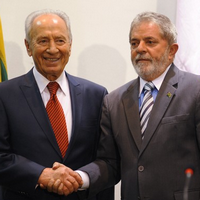
Middle Eastern diplomacy has intensified enormously in recent months, but don’t expect to see peace break out any time soon as a result of that new burst of activity. That’s because the latest wave of diplomacy has surfaced in a most unlikely place: South America. In November alone, Brazil is playing host to the presidents of Israel, Iran and the Palestinian Authority. Why have these leaders, all facing pressing problems at home, suddenly decided to travel thousands of miles to spend time with the heads of developing nations? The visits are hardly routine. When Israeli President Shimon Peres landed in […]
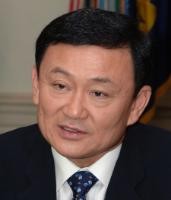
BANGKOK — Cambodian Prime Minister Hun Sen’s recent appointment of Thailand’s former premier, Thaksin Shinawatra, as an economic adviser was the diplomatic equivalent of precision bombing, whose shockwaves have sent relations between the neighboring Southeast Asian nations into a tailspin. But as the dust settles, observers say it is unclear who actually benefited from the increased tensions between Thailand and Cambodia. Thaksin — who was ousted by a military putsch in September 2006 and has been a polarizing figure in Thai politics ever since — is on the run from a two-year jail term for corruption handed down by Thailand’s […]

Gripped by simmering cross-border tensions, a dysfunctional democracy and collective unease over the health of the monarchy, Thailand has seen its status as a major power in Southeast Asia and its influence in the wider region cast under a harsh light recently. The most recent political shockwaves to roll through the Bangkok establishment emanated from ousted Thai leader Thaksin Shinawatra, who having fled a jail term for corruption, continues to goad his enemies from exile — this time by accepting a job offer from the Cambodian government as an economic adviser. At a carefully stage-managed press conference last week, with […]
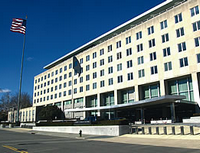
The following op-ed has been adapted from the Project for National Security Reform’s recently released report (.pdf), “Turning Ideas Into Action.” It is the first of three that WPR will be featuring. The second will appear tomorrow. The current Department of State was not designed to manage the increasingly diverse responsibilities of the U.S. government in a globalized world. While the department occupies center stage of the civilian foreign affairs community, it remains narrowly focused on, and resourced for, traditional diplomacy. It neither possesses nor exercises sufficient authority to manage the full range of international civilian programs effectively. While there […]
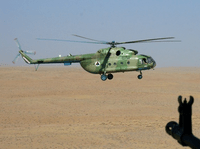
KANDAHAR, Afghanistan — The Afghan helicopter, a brand-new Russian-made Mi-17*, wasn’t clearly his, but U.S. Air Force Maj. Darren Brumfield was still determined to keep it. His unit, the 438th Air Expeditionary Training Group, needs four transport helicopters to perform its mission, and in early November, the group had just three. Assembled in Kandahar in April and tasked with mentoring the local Afghan National Army Air Corps wing, the group “shadows” and advises its Afghan counterparts as the Afghans maintain and fly the helicopters on behalf of the Afghan military. But of the three helicopters the unit did have on […]
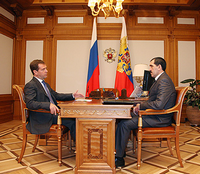
Observers might disagree about what to call the situation in tiny Ingushetia, a federal republic in Russia’s North Caucasus wracked by an increasingly bloody Islamist insurgency. But whether the violence that has claimed hundreds of lives in the past few years qualifies as a civil war, a colonial war, a war on terror, or just persistent instability, one thing almost everyone agrees on is that Ingushetia increasingly displays the features of a failed state. Perhaps nowhere is that more evident than in the small territory’s dysfunctional security forces. Deteriorating relations between Russian federal authorities and the local police in Ingushetia […]

BEIJING — Although nuclear arms control is not likely to be a major agenda item during President Barack Obama’s visit to China, it should be. One of the obstacles facing the president as he seeks to realize the ambitious goals endorsed by the Nobel Peace Prize Committee is the need to transform the primarily bilateral strategic arms control relationship inherited from the Cold War into one that places greater emphasis on multilateral frameworks. Although Moscow and Washington have made progress in negotiating a replacement for the Strategic Arms Reduction Treaty (START) that expires this December, other nuclear weapons states must […]

It remains uncertain whether Iran will ultimately accept or reject the agreement that nuclear negotiators in Geneva drafted late last month to send Iran’s stockpiled enriched uranium abroad for further enrichment. But the deliberations in Tehran have made one thing clear: Iranian President Mahmoud Ahmadinejad is under enormous domestic pressure from all sides to reject the P5+1 deal. It would be a mistake, however, to view this pressure in the vacuum of the nuclear issue. In fact, the opposition to striking a deal with the West offers a revealing glimpse of what the future holds for Iran’s fractured political landscape. […]
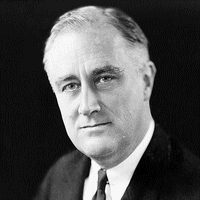
President Barack Obama has successfully transformed America’s strategic dialogue with the world for the better in his first year, impressing Europe — or at least eminently sensible Norway — enough to win a Nobel Peace Prize. In relationship after relationship, America now finds itself talking about what really matters, which in most instances means prioritizing economics above terrorism (George W. Bush’s one-note presidency) and climate change (Al Gore’s shrill post-vice-presidency). For those who prefer a diet of constant fear, Obama’s maddeningly calm approach is not nearly as filling as an American foreign policy forever focused on perceived existential threats. The […]
